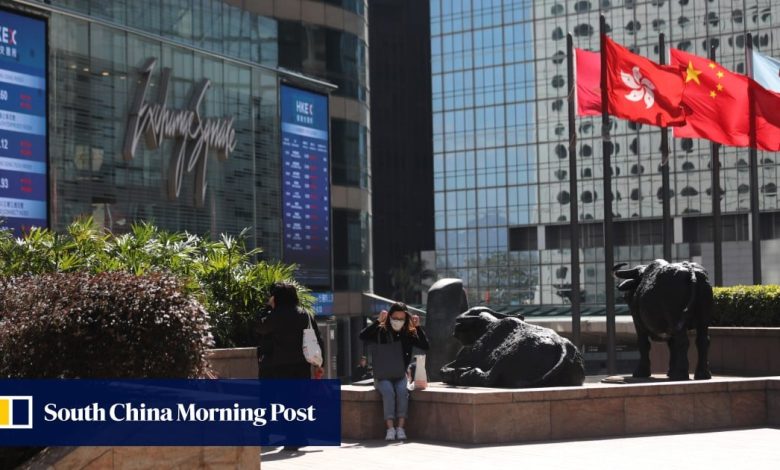Hong Kong listings remain muted as cautious issuers play wait-and-see, law firms say

Weak market sentiment and general economic uncertainty in mainland China continues to breed caution in Hong Kong’s capital market, causing potential issuers to extend their windows for new share offerings, according to law firm Clifford Chance.
“We have had deals where the issuer has been looking at the market, and even with listing approval they might decide to go out to the market at a later stage” said Jean Thio, Shanghai-based partner at Clifford Chance. “This creates a longer window where we’re working on deals.”
High interest rates and global economic uncertainty depressed initial public offering (IPO) fundraising in Hong Kong by 35 per cent year on year to HK$11.6 billion (US$1.5 billion) in the first half, according to KPMG. Deal volume fell 15 per cent to 27 new listings, and the average deal size plunged 25 per cent to HK$428 million. However, last month Hong Kong Exchanges and Clearing, the city’s bourse operator, said it had 106 listing applications in its pipeline, up from 73 a year earlier.
“We have good candidates in the pipeline and we can see quite a lot of interest in them,” Thio said. “But we don’t know if they’ll choose to do the fundraising now or wait until they think they’ll get a better valuation.”
Many companies have waited long enough that their listing applications have lapsed as the city’s capital market activity remains muted.
“The window to list is becoming longer, and fundraising and valuations are obviously top of mind for issuers,” said Thio.
Even among deals where the issuer has been looking at the market for a long time and obtained listing approval from the China Securities Regulatory Commission, companies may decide to wait, she added.
Meanwhile, recent market turmoil has dented investors’ appetite for risk.
“People need to see a little bit more certainty on where the equity markets are heading,” Thio said.

Despite the uncertainty, Clifford Chance remains generally positive about the city’s listing pipeline. The firm is seeing a lot of interest from companies in the areas of hard technology, manufacturing, industrials and artificial intelligence, boosted by the Chapter 18C regime.
Echoing these sentiments, lawyers at Sidley Austin said international capital is expected to gradually return as the Hong Kong IPO market improves.
“There are some mega deals on the horizon, but it still depends on the risk appetite of the investors,” said partner Sherlyn Lau. Mid-sized deals may be more likely to come to fruition under the current market conditions, she added.
“Chapter 18C has a great potential because it is related to China’s national industrial strategy, which is to be self-sufficient in hardware and high-end manufacturing,” said Meng Ding, also a partner at Sidley Austin.
“We could potentially see sizeable deals in the second half of this year,” said Ding.

